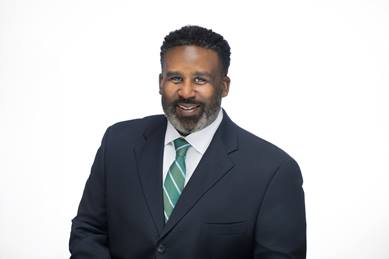Kwesi Matthews

Kwesi Matthews
Fellowship Placement: United States House of Representatives
Hometown: Redford, Michigan
Kwesi Matthews brings over 18 years of passionate dedication to STEM education and leadership to his role as a science teacher at Crockett Midtown High School of Science & Medicine in Detroit. There, he teaches Chemistry, Physics, and Anatomy & Physiology, creating dynamic learning environments where students engage in hands-on inquiry that connects scientific concepts to real-world applications.
Throughout his career, Kwesi has taught everything from Physical Science and Biology to Chemistry, Earth Science, and Forensics across Detroit's public and charter schools. His approach to curriculum design focuses on meeting diverse learning needs while maintaining high academic standards. Beyond the classroom, he's coached both the school's chess team to a city championship and led the girls' track and cross-country teams to first-place finishes, demonstrating his commitment to developing well-rounded students.
Kwesi earned his Bachelor of Science in Sociology from Savannah State University, followed by a Master of Education in Secondary Science and an Education Specialist degree in Educational Leadership from Cambridge College in Massachusetts. He holds Michigan certification to teach science in grades 6-12 and K-12 administrative certification. His broader impact on science education extends to his work as an adjunct instructor at Lawrence Technological University and as a former workshop presenter for Loose in the Lab.
In recognition of his exceptional contributions to science teaching, Kwesi was named a Dow Chemical Fellow by the National Science Teachers Association (2011-2012). He actively participates in professional organizations including NSTA, the Michigan Science Teachers Association, and the American Modeling Teachers Association.
At the heart of Kwesi's educational philosophy is a deeply held belief that all students, especially those too often underestimated or overlooked, deserve access to quality science instruction regardless of their background. He's convinced that when we nurture our students’ natural curiosity and affirm their capacity to think critically and creatively, we unlock the doors to innovation, self-determination, and a future they can shape for themselves and their communities.


